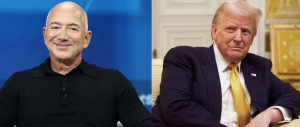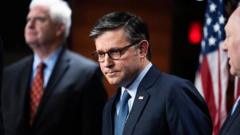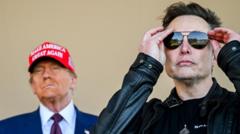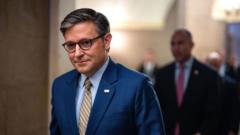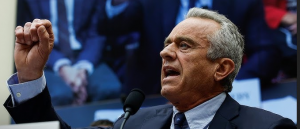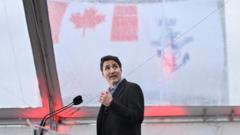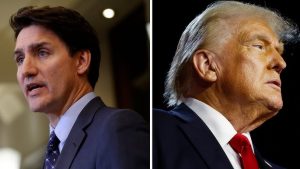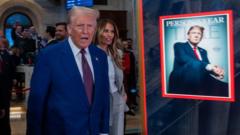At the international climate summit in Azerbaijan, U.S. officials face uncertainties over future policies as transition to a Trump presidency looms.
COP29 Climate Talks: U.S. Officials Aim to Maintain Hope Amid Fears of Trump Presidency

COP29 Climate Talks: U.S. Officials Aim to Maintain Hope Amid Fears of Trump Presidency
As COP29 unfolds in Baku, Azerbaijan, U.S. Democrats reassure global partners that climate efforts will persist regardless of upcoming political changes.
In the picturesque city of Baku, Azerbaijan, the ongoing COP29 climate summit has become a stage for significant discussions surrounding international climate action and financial support. This year's summit particularly emphasizes the need for financing mechanisms to assist lower-income nations grappling with the repercussions of climate change. Amidst these grandeur discussions, a shadow lurks over U.S. representation due to the impending return of Donald Trump as president.
Reports emerged on Saturday showcasing the varied approaches by different national delegations. Australian representatives were serving brewed coffee, and the Singaporean pavilion offered free beer to attendees. In stark contrast, the American delegation, comprised mostly of Democrats, felt an urgency to project optimism amidst apprehensions that U.S. commitment to global climate initiatives might wane.
Senator Sheldon Whitehouse from Rhode Island articulated the collective anxiety, noting that by January the U.S. administration would pivot away from climate responsibility. “Effective in January, the United States government will be defecting from any position of responsibility,” he stated. Nonetheless, he reassured fellow delegates that significant climate-related actions are likely to continue emanating from the U.S. even post-election.
Conversely, president-elect Trump poses a significant shift in climate policy, with campaign signals indicating intentions to withdraw from the Paris climate agreement and scale back existing environmental regulations. His administration plans to ramp up fossil fuel production, a primary contributor to global warming.
With the transition on the horizon, COP29 has activated a breadth of discussions, highlighting how nations strategize around climate resilience funding while managing the uncertain dynamics of U.S. political landscapes. The upcoming days at the summit are poised to explore a myriad of alternatives and pathways that could ensure continued international collaboration, regardless of which parties lead their respective nations.
Reports emerged on Saturday showcasing the varied approaches by different national delegations. Australian representatives were serving brewed coffee, and the Singaporean pavilion offered free beer to attendees. In stark contrast, the American delegation, comprised mostly of Democrats, felt an urgency to project optimism amidst apprehensions that U.S. commitment to global climate initiatives might wane.
Senator Sheldon Whitehouse from Rhode Island articulated the collective anxiety, noting that by January the U.S. administration would pivot away from climate responsibility. “Effective in January, the United States government will be defecting from any position of responsibility,” he stated. Nonetheless, he reassured fellow delegates that significant climate-related actions are likely to continue emanating from the U.S. even post-election.
Conversely, president-elect Trump poses a significant shift in climate policy, with campaign signals indicating intentions to withdraw from the Paris climate agreement and scale back existing environmental regulations. His administration plans to ramp up fossil fuel production, a primary contributor to global warming.
With the transition on the horizon, COP29 has activated a breadth of discussions, highlighting how nations strategize around climate resilience funding while managing the uncertain dynamics of U.S. political landscapes. The upcoming days at the summit are poised to explore a myriad of alternatives and pathways that could ensure continued international collaboration, regardless of which parties lead their respective nations.

